
Find Help
More Items From Ergsy search
-

Mental Health Support for Families: Resources and Guidance
Relevance: 100%
-

Mental Health Support for Families - Latest Resources and Guidance
Relevance: 96%
-

Mental Health Support Resources for Families
Relevance: 86%
-

Mental Health Support for Families: Resources and Helplines
Relevance: 83%
-

Mental Health Support for Families: Resources and Strategies
Relevance: 81%
-

Mental Health Resources for Families
Relevance: 81%
-

Advancements in Mental Health Resources for Families
Relevance: 76%
-

Mental Health Support Resources in the UK
Relevance: 74%
-

Accessing Mental Health Support Resources in the UK
Relevance: 67%
-

Mental Health Impact of Cost of Living Crisis and Support Resources
Relevance: 62%
-

Mental Health Support Services in the UK
Relevance: 57%
-

What mental health resources are available for seniors?
Relevance: 56%
-

Can primary care support workers access mental health support?
Relevance: 51%
-
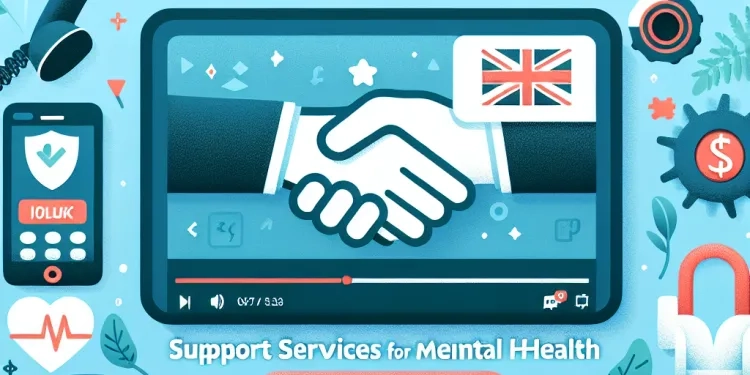
Support Services for Mental Health Amid Economic Uncertainty
Relevance: 50%
-

NHS Unveils Revolutionary Mental Health Support Initiative
Relevance: 47%
-

Mental Health: Laura's Story | NHS
Relevance: 45%
-
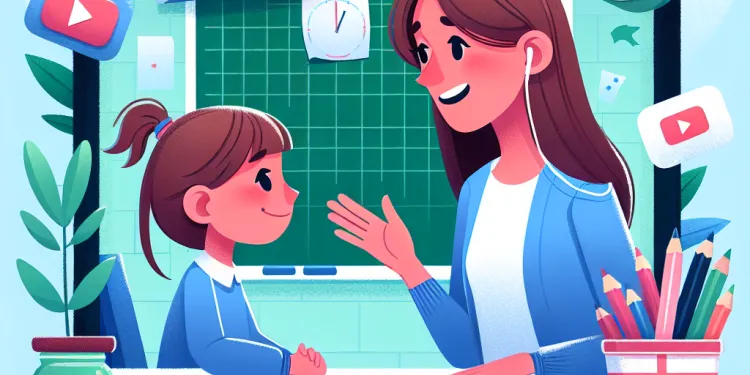
Understanding Mental Health in Children
Relevance: 45%
-

Navigating Mental Health Services for Children and Adolescents
Relevance: 43%
-

Current Challenges in Youth Mental Health Services
Relevance: 43%
-

Tackling Youth Mental Health: Community Initiatives and Solutions
Relevance: 42%
-
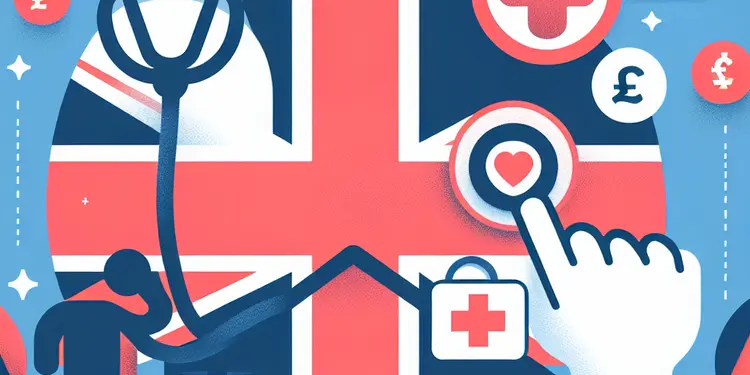
Can community helpers access physical health resources?
Relevance: 41%
-

Impact of Rising Living Costs on Family Health
Relevance: 41%
-

Addressing the Cost of Living Crisis: Community Support and Resources
Relevance: 40%
-

New Mental Health Strategy Launched to Address Youth Anxiety Epidemic
Relevance: 40%
-

Emergency Legal Guidance: Navigating the Impact of Sudden Policy Changes on Families
Relevance: 39%
-

How can families support a member with autism?
Relevance: 39%
-

What is the impact of obesity on mental health?
Relevance: 39%
-

Essential Tips for Mental Health and Well-Being Amidst Rising Living Costs
Relevance: 38%
-

Mental Health Services Struggle to Cope Amid Record Demand
Relevance: 38%
-

Addressing the Rising Cost of Living: Community Support and Resources
Relevance: 38%
-

What support is available for families of individuals with PIMD?
Relevance: 38%
-
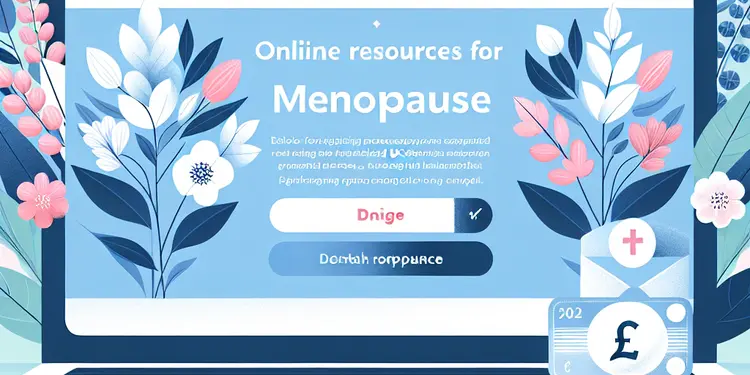
What online resources does the NHS offer for menopause?
Relevance: 38%
-

Short Films About Mental Health - Trauma PTSD
Relevance: 37%
-
Can eating disorders occur with other mental health conditions?
Relevance: 37%
-

Can ending a toxic relationship improve my mental health?
Relevance: 37%
-

Can relationship problems be resolved to improve mental health?
Relevance: 37%
-

How can family members support someone with postnatal depression?
Relevance: 37%
-

What are senior caregiving resources?
Relevance: 36%
-

How do eating disorders affect mental health?
Relevance: 36%
-
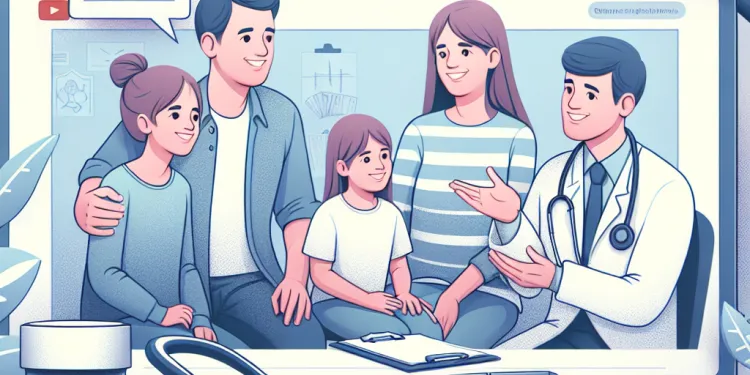
Managing Chronic Illness Within the Family
Relevance: 36%
Mental Health Support for Families - Latest Resources and Guidance
Introduction
Mental health issues are becoming increasingly prevalent, not just for individuals but within families. With the pressures of modern life, many families in the United Kingdom are searching for effective ways to support each other. This article outlines the latest resources and guidance available to support families in fostering a healthy mental environment.
Government Initiatives
The UK government has recognized the need for robust mental health support and has consequently increased funding and resources. Families can benefit from initiatives such as the NHS's Every Mind Matters program, which provides tips and resources tailored for family well-being. In addition, local councils often offer free mental health workshops and resources.
Educational Resources
Schools and educational institutions now play a pivotal role in mental health support. Many schools offer counseling services and have implemented mental health education into their curriculum. The government's dedicated online platform, "Healthy Minds," offers parents and students a range of tools and resources aimed at understanding and managing mental health issues.
Charitable Organizations and Community Groups
Numerous charities such as Mind, YoungMinds, and the Mental Health Foundation offer extensive support for families. These organizations provide helplines, online resources, and community support groups. Engaging with these services can offer families practical advice and emotional support from trained professionals and peers.
Technology and Online Support
With advancements in technology, several apps and online platforms have emerged to support mental health. Apps like Headspace and Calm offer mindfulness and relaxation techniques, while platforms such as Kooth provide online counseling for young people. The NHS also offers an array of mental health apps and digital services that can be accessed via their website.
Practical Tips for Families
Open communication is critical. Encourage family members to express their feelings and listen without judgment. Establish routines that include time for relaxation and hobbies. Physical activity is also essential; try to incorporate regular exercise into your family's daily schedule. Lastly, do not hesitate to seek professional help when needed. Early intervention can make a significant difference.
Conclusion
Mental health is a crucial aspect of family well-being. By using the latest resources and guidance available, families in the UK can better support each other through challenges. Whether leveraging government initiatives, educational resources, charitable organizations, technology, or practical self-help tips, the goal is to create a supportive environment where every family member feels valued and understood.
Mental Health Support for Families - Latest Resources and Guidance
Introduction
Mental health is about how we think and feel. Many families are having a harder time with mental health now. This is true in the United Kingdom and all over the world. Families want to help each other feel better. This guide will show you the newest ways to help families stay happy and healthy.
Government Initiatives
The UK government knows how important mental health is. They have given more money to help. One way they help is with the NHS's Every Mind Matters program. This program gives tips to help families feel better. Local councils also have free classes and help.
Educational Resources
Schools help with mental health too. Many schools have counselors to talk to. They also teach students about mental health. There is a website called "Healthy Minds" where parents and kids can learn more about mental health.
Charitable Organizations and Community Groups
There are charities like Mind, YoungMinds, and the Mental Health Foundation that help families. They have hotlines you can call, websites to read, and group meetings to join. These groups give advice and support from people who care.
Technology and Online Support
Technology can help with mental health. There are apps like Headspace and Calm that help you relax. Kooth is a website where young people can talk to a counselor. The NHS also has apps on their website to help with mental health.
Practical Tips for Families
It is important to talk to each other. Let everyone share their feelings and listen carefully. Make time each day to relax and enjoy activities. Exercise is good for mental health, so try to move around every day. If you need more help, you can talk to a doctor or counselor.
Conclusion
Mental health is very important for families. Families in the UK can use these resources to help each other. With government help, schools, charities, technology, and good communication, families can support each other well. The goal is to help everyone feel cared for and understood.
Frequently Asked Questions
What resources are available for families dealing with mental health issues in the UK?
Families in the UK can access a range of resources including NHS mental health services, Mind, YoungMinds, and Rethink Mental Illness. Many of these organizations provide helplines, online resources, and local support groups.
How can I support a family member who is experiencing mental health problems?
You can support a family member by listening to them without judgment, encouraging them to seek professional help, educating yourself about their condition, and helping them with daily activities if needed. It’s also important to look after your own mental health.
Are there any mental health helplines available for immediate support?
Yes, there are several helplines available such as Samaritans (116 123), Mind (0300 123 3393), and YoungMinds Parents Helpline (0808 802 5544). These provide immediate support and advice.
What signs should I look out for if I think a family member may be struggling with their mental health?
Common signs include changes in mood, withdrawal from social activities, changes in eating or sleeping patterns, and difficulties in concentrating or performing daily tasks.
Can children and teenagers access mental health support in the UK?
Yes, children and teenagers can access support through Child and Adolescent Mental Health Services (CAMHS), as well as charities like YoungMinds and the NSPCC, which offer a variety of resources and helplines.
How can I find a therapist or counsellor for my family member?
You can find a therapist or counsellor by asking your GP for a referral, searching the British Association for Counselling and Psychotherapy (BACP) website, or using directories like Therapy Directory.
What should I do if my family member refuses to get help?
It's important to remain patient and supportive. You can encourage them by sharing information about the benefits of seeking help, discussing their fears about treatment, and suggesting they start with small steps, like speaking to a trusted friend or a GP.
Are there any financial support options for families dealing with mental health issues?
Yes, financial support options are available such as disability benefits, Carer's Allowance, and grants from charities. Citizens Advice can help you navigate these options.
How can I educate myself about mental health conditions?
You can educate yourself by reading information from reputable sources like the NHS, Mind, and Rethink Mental Illness. Online courses, books, and webinars are also good resources.
What support is available for carers of people with mental health issues?
Carers can access support through Carers UK, the Carers Trust, and local authorities. These organizations offer resources, support groups, and respite care options.
How can I ensure the mental wellbeing of my children?
Promote open communication, encourage healthy habits such as regular exercise and a balanced diet, monitor their use of social media, and seek professional help if you notice any concerning changes in their behaviour.
Are there online resources available for mental health support?
Yes, many websites offer valuable resources, including the NHS website, Mind's information hub, and websites like Mental Health Foundation and Anxiety UK. These sites offer information, tools, and advice.
What can employers do to support employees with mental health issues?
Employers can support employees by promoting a supportive work environment, providing access to Employee Assistance Programs (EAPs), offering flexible working arrangements, and providing mental health awareness training for management.
How can I help reduce the stigma around mental health in my community?
You can help reduce stigma by openly discussing mental health, challenging misconceptions, supporting mental health initiatives, and educating others about mental health issues.
What should I do if a family member is experiencing a mental health crisis?
In a crisis, it is important to stay calm and seek immediate help. Contact emergency services by calling 999, go to the nearest A&E, or call NHS 111 for urgent advice. You can also contact crisis helplines such as the Samaritans.
Where can families get help with mental health problems in the UK?
Families in the UK can get help from different places. They can contact NHS mental health services, Mind, YoungMinds, and Rethink Mental Illness. These groups have phone helplines, websites with information, and local groups for support.
How can I help a family member with mental health problems?
If someone in your family is feeling sad or worried a lot, here are ways you can help:
- Listen: Let them talk about how they feel. Show you care by listening carefully.
- Be Kind: Say nice things to make them feel better. Let them know they are not alone.
- Offer Help: Ask if there is something you can do to help. Maybe you can do something nice for them.
- Learn Together: Find easy books or videos that talk about feeling better. Learn about ways to feel happier.
- Find Support: Help them see a doctor or a counselor. These people know how to help with feelings.
Remember, it's okay to ask for help. You can also talk to someone you trust about how you feel. Being there for your family is a great way to show love.
You can help a family member by doing these things:
- Listen to them without saying they are wrong.
- Tell them it is okay to talk to a doctor or counselor.
- Learn about what they are going through.
- Help them with things they need to do every day.
- Remember to take care of your own feelings too.
Some tools that can help are:
- Telling stories or using pictures to explain things.
- Using a calendar to keep track of important things.
- Finding a friend or a group to talk to when you feel worried.
Can I call someone for help if I feel upset or worried?
Yes, there are phone lines you can call for help. Here are some of them:
- Samaritans: Call 116 123 for help anytime.
- Mind: Call 0300 123 3393 for advice and support.
- YoungMinds Parents Helpline: Call 0808 802 5544 if you are a parent who needs help.
You can talk to these people when you need support.
How can I tell if someone in my family is not feeling well in their mind?
Look for signs like:
- Feeling sad or angry a lot.
- Not wanting to play with friends.
- Eating more or less than usual.
- Sleeping too much or not enough.
- Finding it hard to focus or do everyday things.
If you notice these signs, it can help to talk to someone you trust. Drawing or writing your feelings can also make it easier to share how you feel.
Can kids and teenagers get help for feeling sad or worried in the UK?
If you are a kid or teenager in the UK and you feel sad, worried, or stressed, you can get help. There are places you can go to talk to someone who will listen and help you feel better.
Here are some ways to get help:
- Talk to a teacher at your school. They can help you find the right support.
- Visit your doctor. They can connect you with someone who can help.
- Call a helpline for kids and teens. You can talk to someone on the phone who understands how you feel.
Remember, it is okay to ask for help. There are people who care and want to help you feel better.
Yes, kids and teenagers can get help from places like CAMHS, YoungMinds, and the NSPCC. These places have lots of information and phone numbers you can call for support.
How can I find someone to help my family member feel better?
Do you want to find someone who can help your family member feel better? Here's how:
- Ask your doctor. They can help you find the right person.
- Look on the internet. You can search for therapists or counsellors near you.
- Talk to friends or family for recommendations. They might know someone who can help.
- Check if there are helplines. You can call them and ask for advice.
You might find it helpful to use tools like a computer or a phone to look for help online.
You can find someone to talk to if you need help with your feelings.
Here are some ways:
- Ask your doctor to help you find someone.
- Look on the British Association for Counselling and Psychotherapy website. It is sometimes called BACP.
- Check the Therapy Directory website.
These places can help you find the right person to talk to.
If reading is hard, try using tools like audio reading apps or ask someone you trust to read with you.
What can I do if someone in my family won't get help?
It is important to be patient and helpful. You can help by telling them why getting help is good, talking about what makes them scared of treatment, and telling them to take small steps, like talking to a trusted friend or a doctor.
Can families get money help if someone is not feeling well in their mind?
Yes, there is money help you can get. This help includes disability benefits, Carer's Allowance, and money from charities. Citizens Advice can help you understand how to get this money help.
How can I learn about mental health?
Do you want to know about mental health? Here are some easy steps:
1. **Read Simple Books**: Find books with easy words about feelings and the brain. 2. **Watch Videos**: Look for videos that explain mental health in simple ways. 3. **Ask for Help**: Talk to a teacher, parent, or a friend. 4. **Use Apps**: Try apps that teach about feelings and mental health.These tools can help you learn more about mental health in a simple way.
You can learn by reading information from trusted places like the NHS, Mind, and Rethink Mental Illness. Watching videos, joining online classes, and reading books also help.
What help can carers get for people with mental health problems?
If you look after someone with mental health problems, you can get help too! Here are some ways:
- **Talk to a doctor**: They can give advice and tell you about support groups.
- **Support Groups**: Join groups where carers share their stories and help each other.
- **Counseling**: Talk to a counselor to help with your feelings.
- **Information Online**: Look for websites that give tips and advice for carers.
- **Respite Care**: This helps you take a break while someone else looks after your loved one.
Remember, it’s okay to ask for help! Here are some tools that can support you:
- **Apps**: Apps like mood trackers can help you understand feelings.
- **Scribble or Write**: Writing down how you feel can also help.
- **Ask Friends or Family**: They can be good listeners and offer help.
If you look after someone, there is help for you. Carers UK, Carers Trust, and your local council can help. They have lots of things to help, like groups to talk with others and places where someone can help you take a break.
How can I help my kids feel happy and good inside?
Talk to them openly. Help them do healthy things like exercise and eat good food. Watch how they use social media. Get help from a professional if you see something worrying about how they act.
Can you find help on the internet for feeling better?
Yes, you can. There are websites that help with mental health. They have tips and guides that can help you feel better. You can also find videos and stories from other people.
Some things you might find helpful are:
- Talking to a friend or family member you trust.
- Using apps that help you relax or feel happy.
- Watching videos about staying calm.
Remember, if you are feeling very upset, you can talk to a doctor or counselor for more help.
Yes, there are lots of helpful websites. The NHS website has good information. Mind, Mental Health Foundation, and Anxiety UK also have useful advice. These websites can help you learn and find tools you need.
How can bosses help workers who feel sad or worried?
Bosses can help their workers by making work a kind place. They can give help through Employee Help Programs (EAPs), let workers have flexible hours, and teach team leaders about mental health.
How can I help people in my community feel better about mental health problems?
You can help stop people from feeling bad about mental health by:
- Talking about mental health with friends and family.
- Explaining what mental health is and why it's important.
- Helping groups that support mental health.
- Telling others what you know about mental health.
What can I do if someone in my family has a mental health emergency?
If something bad happens, keep calm and get help. Call 999 for emergency services or go to the closest A&E (Accident and Emergency) for help. You can also call NHS 111 for advice if you need help fast. Remember, you can call the Samaritans, too. They are there to listen and help you.
Some tips to help you stay calm: take deep breaths, count to ten, and focus on things you can see around you. These can help you feel better when you are upset.
Useful Links
This website offers general information and is not a substitute for professional advice.
Always seek guidance from qualified professionals.
If you have any medical concerns or need urgent help, contact a healthcare professional or emergency services immediately.
Some of this content was generated with AI assistance. We’ve done our best to keep it accurate, helpful, and human-friendly.
- Ergsy carfully checks the information in the videos we provide here.
- Videos shown by Youtube after a video has completed, have NOT been reviewed by ERGSY.
- To view, click the arrow in centre of video.
- Most of the videos you find here will have subtitles and/or closed captions available.
- You may need to turn these on, and choose your preferred language.
- Go to the video you'd like to watch.
- If closed captions (CC) are available, settings will be visible on the bottom right of the video player.
- To turn on Captions, click settings .
- To turn off Captions, click settings again.
More Items From Ergsy search
-

Mental Health Support for Families: Resources and Guidance
Relevance: 100%
-

Mental Health Support for Families - Latest Resources and Guidance
Relevance: 96%
-

Mental Health Support Resources for Families
Relevance: 86%
-

Mental Health Support for Families: Resources and Helplines
Relevance: 83%
-

Mental Health Support for Families: Resources and Strategies
Relevance: 81%
-

Mental Health Resources for Families
Relevance: 81%
-

Advancements in Mental Health Resources for Families
Relevance: 76%
-

Mental Health Support Resources in the UK
Relevance: 74%
-

Accessing Mental Health Support Resources in the UK
Relevance: 67%
-

Mental Health Impact of Cost of Living Crisis and Support Resources
Relevance: 62%
-

Mental Health Support Services in the UK
Relevance: 57%
-

What mental health resources are available for seniors?
Relevance: 56%
-

Can primary care support workers access mental health support?
Relevance: 51%
-

Support Services for Mental Health Amid Economic Uncertainty
Relevance: 50%
-

NHS Unveils Revolutionary Mental Health Support Initiative
Relevance: 47%
-

Mental Health: Laura's Story | NHS
Relevance: 45%
-

Understanding Mental Health in Children
Relevance: 45%
-

Navigating Mental Health Services for Children and Adolescents
Relevance: 43%
-

Current Challenges in Youth Mental Health Services
Relevance: 43%
-

Tackling Youth Mental Health: Community Initiatives and Solutions
Relevance: 42%
-

Can community helpers access physical health resources?
Relevance: 41%
-

Impact of Rising Living Costs on Family Health
Relevance: 41%
-

Addressing the Cost of Living Crisis: Community Support and Resources
Relevance: 40%
-

New Mental Health Strategy Launched to Address Youth Anxiety Epidemic
Relevance: 40%
-

Emergency Legal Guidance: Navigating the Impact of Sudden Policy Changes on Families
Relevance: 39%
-

How can families support a member with autism?
Relevance: 39%
-

What is the impact of obesity on mental health?
Relevance: 39%
-

Essential Tips for Mental Health and Well-Being Amidst Rising Living Costs
Relevance: 38%
-

Mental Health Services Struggle to Cope Amid Record Demand
Relevance: 38%
-

Addressing the Rising Cost of Living: Community Support and Resources
Relevance: 38%
-

What support is available for families of individuals with PIMD?
Relevance: 38%
-

What online resources does the NHS offer for menopause?
Relevance: 38%
-

Short Films About Mental Health - Trauma PTSD
Relevance: 37%
-
Can eating disorders occur with other mental health conditions?
Relevance: 37%
-

Can ending a toxic relationship improve my mental health?
Relevance: 37%
-

Can relationship problems be resolved to improve mental health?
Relevance: 37%
-

How can family members support someone with postnatal depression?
Relevance: 37%
-

What are senior caregiving resources?
Relevance: 36%
-

How do eating disorders affect mental health?
Relevance: 36%
-

Managing Chronic Illness Within the Family
Relevance: 36%


